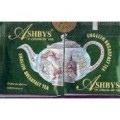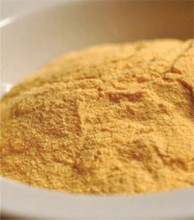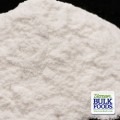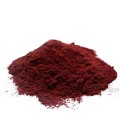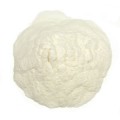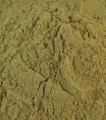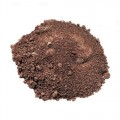 Loading... Please wait...
Loading... Please wait...- Home
- About Us
- Shipping, Returns & FAQ's
- Contact Us
-
For Your Information
- Canadian Customers Have a Choice if Shipping Via UPS
- Aura Cacia Homemade Aromatherapy Recipes
- Bella Nella Altered Art & Paper Crafts Blog
- Forms of Herbal Preparations
- Laundry Tips To Conserve Energy Blog from The Laundress
- The Story of Frontier Natural Products Co-Op
- Sovereign Silver Hydrosol and Aloe Protocol Stops Downward Spiral of Gut Dysbiosis
- Disclaimers
- Recommended Links
- RSS/Recent News
- The Story of Typhoon Housewares
- Reviews/Testimonials
- Raw Ingredients for Mfg
- Home
- Raw Materials
- Flavors
- Papaya Fruit Powder Bulk
Papaya Fruit Powder Bulk
Product Description
With a sweet and summery taste and fragrance, our papaya powder is teeming with enzymes, beta carotene and lycopenes. Completely water-soluble with a huge range of versatile uses, the rich, mellow color makes it an incredibly attractive ingredient.
Due to the unique manufacturing process, it perfectly captures the aroma, color and flavor qualities of the sweetest tropical Papaya juice. Due to its total water solubility and radiant color, it's the ideal inclusion in many foods, such as ice cream, fruit juice, ice tea, soup, yogurt, instant food, flavor packs in tea bags, smoothies, candies, chocolates, flavored milk, fruit cocktails, fruit sauces, fillings, baking mixes, salad dressings, etc. It’s the perfect choice for applications that require complete control over the water activity in a functional formula.
Papaya is a popular choice for digestive formulas. Digestive health has been identified as the Number 1 Key Trend for 2011 by New Nutrition Business Journal. Applications for our papaya powder also include capsules, tablets and nutritional powders.
As Papaya is known for its rejuvenating effects on the skin, it is also a useful ingredient for skin care products, scrubs, face packs, masks and cosmetics. Bring the luscious taste and sunlit color of the tropics to your product formula.
History
Papaya is an herbaceous tree with a stem of spongy, soft wood that is hollow in the center and bears melon-like fruit. It is an interesting tree, in that the male and female parts exist in different trees, and trees may grow to a height of twenty to thirty feet.
The Papaya Tree needs a tropical climate that is dry when cold and wet when warm; consequently, its greatest success appears in the equatorial zone with its warm wet season and cool dry season. It is extremely sensitive to frost, and water-logging will kill the taproot within forty-eight hours. The Papaya tree is especially susceptible to parasites, pests and diseases.
This fussy plant needs a lot of water but must have good drainage, and it bears most fruit in light, porous, slightly acidic soils that are rich in organic matter. Said to be a native of the Caribbean and Central America, the Papaya is the true papaw that now grows abundantly throughout tropical America, Hawaii and many other tropical climates throughout the world.
Although grown to some extent in south Florida, the true papaw is not related to the North American papaw. The fruits, leaves and latex are all used medicinally. The fruit is usually pear-sized and has a central cavity filled with edible, pea-sized seeds.
Papaya Fruit is eaten as a melon, included in salads and when unripe, it is cooked as a vegetable. The seeds are said to have a similar flavor as capers. The green fruit stems and leaves are a rich source of gummy, milky, white latex that contains the powerful enzyme, papain (in latex and exudates).
This protein-dissolving substance has not only been widely used for stomach and digestive disorders, but it is also included in commercial preparations as a meat tenderizer, chewing gum and as a stabilizing agent that is used to clarify beer. Some of the constituents included in Papaya Fruit are the fermenting agent myrosin, another important enzyme (chymopapain), butanoic acid, methyl butanoate, benzylglucosinolate, linalool, cis- and trans-linalool oxide, alpha-linolenic acid, alpha-phellandrene, gamma-terpinene, 4-terpineol, terpinolene, methyl-thiocyanate and benzyl-isothiocyanate, rutin, resin, lycopene, malic acid, methyl salicylate, calcium, iron, magnesium, manganese, phosphorus, potassium, zinc, beta-carotene, B-vitamins and vitamins A, C and E.
Beneficial Uses:
Papaya is an excellent treatment for digestive disorders and extremely useful for any disturbances of the gastrointestinal tract. Papain, the powerful enzyme in Papaya, helps to dissolve and digest protein, thus easing stomach ailments and indigestion. (Because papain breaks down tough meat fibers, it is often used in restaurants and is the major ingredient in commercial meat tenderizers!) Papaya has been effective in easing heartburn and is given to treat dyspepsia and gastric catarrh. Papaya also stimulates the appetite.
Papaya's enzyme, papain, not only digests protein, but it extends its activity to digesting carbohydrate. Papain also breaks down wheat gluten, which may be helpful for those suffering from Celiac disease. Those who have difficulty digesting starchy foods, such as breads, cereals and potatoes, might find great relief in including Papaya in their diets.
Papaya helps to settle a nervous and upset stomach and the queasy feelings often associated with travel and motion sickness. It has also been helpful in relieving morning sickness.
The papain in Papaya is thought to relieve acute prostate inflammation and may be very helpful in cases of benign prostatic hypertrophy (BPH). Clinical studies in Russia found that papain treatment reversed rectal lesions induced by extreme prostate enlargement in over 97 percent of the men treated.
Papaya is said to stimulate the bowels in times of constipation and is also believed to be useful in treating inflammatory bowel disorders.
The papain in unripe Papaya's gummy milk sap has been known to kill parasites by digesting them and has been used in herbal medicine to kill and expel worms. (Papaya has even been used for termite control.) Papaya's latex also works as a dewormer by its purgative actions, increasing the movement of intestinal contents.
The papain in Papaya is currently undergoing studies to investigate its efficacy in treating the herpes simplex virus and herpes zoster (shingles).
Another papayan enzyme, chymopapain, has been used in the treatment of slipped spinal disc and pinched nerves.
Extracts of the pulp of Papaya Fruit have showed bacteriostatic properties when tested against Staphylococcus aureua, Escherichia coli, Salmonella typhi, Bacillus subtilis and other bacteria in vitro.
Since many stomach problems are the direct result of indigestion, use of Papaya appears to help prevent many ailments. It stimulates digestive acids and the production of bile, which may also lead to a healthier liver and pancreas.
Papaya is said to have compounds that act as the female hormone, estrogen and has been used in folk medicine to promote milk production, facilitate childbirth and increase the female libido. In some parts of the world, it is used to induce menstruation and is considered a uterine stimulant.
In other cultures, Papaya has many medicinal applications. For treatment of poisonous snakebites, Papaya helps to degrade the venom protein in the blood, thus losing its deadly strength. It is used topically to rid the pain of insect stings, and it is said that when applied to heal wounds, it digests dead tissue without affecting the surrounding live tissue. In Jamaica, the gummy latex of the unripe papaya fruit is slowly dripped onto warts and corns, shriveling them, and they fall off. The juice has been used as a facial wash to remove freckles.
Papain Enzyme is available here
Ingredients: Papaya, maltodextrin (5%).
Botanical Name: Carica papaya L.
Storage: Three years if sealed and stored away from sunlight and moisture. Not over 30°C.
Origin: China
Notes: Food-Grade. Kosher Certified. Non-irradiated
Specifications are subject to change without notice.
* FDA disclaimer
Courtesy of www.authorsden.com
You Recently Viewed...
Currency Converter
Choose a currency below to display product prices in the selected currency.





